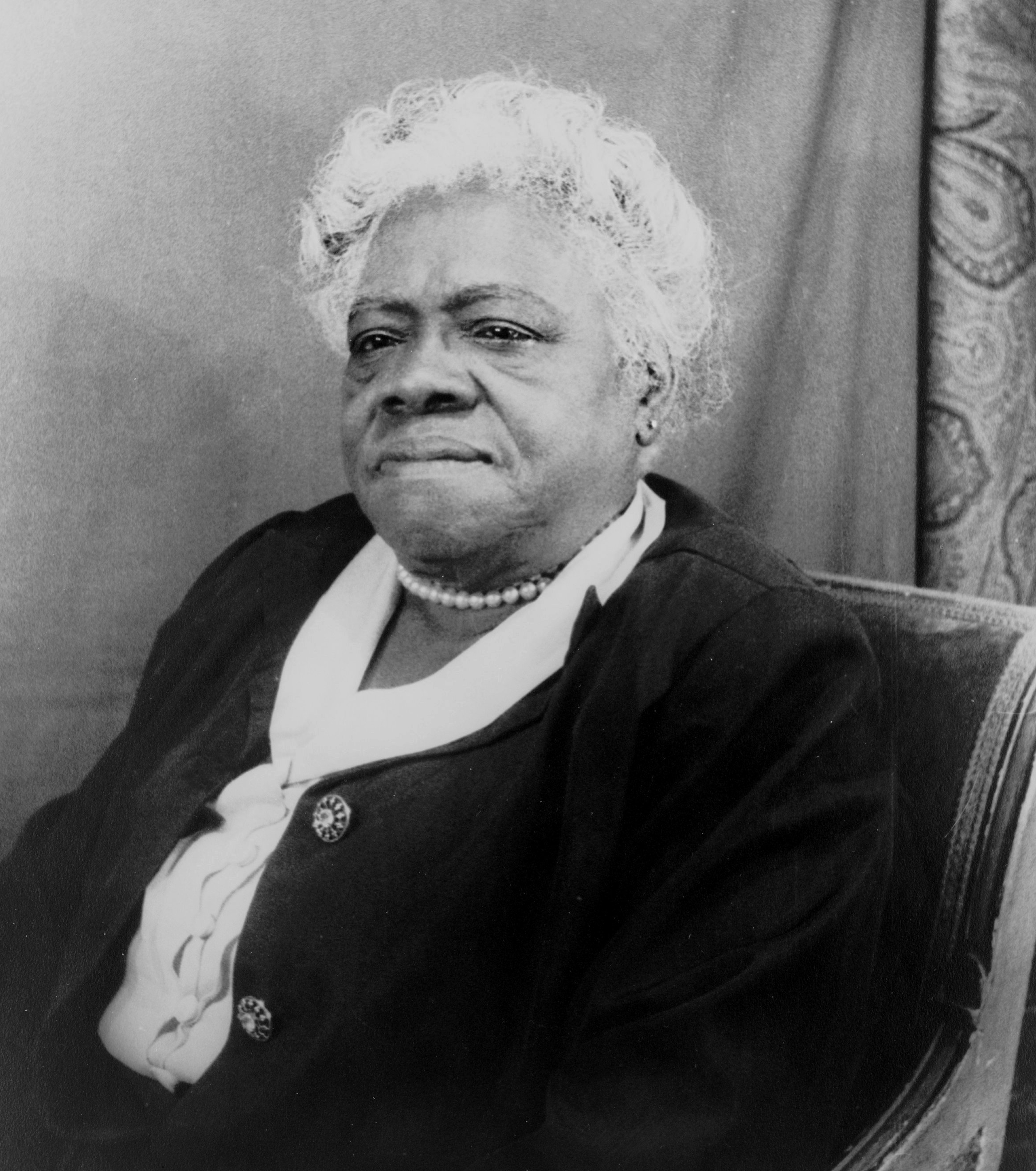Bethune << buh THOON >>, Mary McLeod (1875-1955), was an African American educator. She was a forceful, inspiring leader who worked to improve educational opportunities for Black people. She also fought for the rights of African American women. In 1904, she opened a school for Black girls in Daytona Beach, Florida. It became a coeducational college in 1923 and a university in 2007. It is now called Bethune-Cookman University. Bethune served as its president until 1942.

United States Presidents Calvin Coolidge, Herbert Hoover, Franklin D. Roosevelt, and Harry S. Truman appointed Bethune to various government posts. From 1935 to 1944, she was Roosevelt’s special adviser on minority affairs. Bethune also served, from 1936 to 1944, as director of the Division of Negro Affairs of the National Youth Administration (NYA). She was the first Black woman to head a federal agency. She helped persuade the NYA to adopt nondiscrimination policies and to create a fund to aid Black graduate students and Black colleges.
Mary Jane McLeod was born in Mayesville, South Carolina, on July 10, 1875. Her parents were formerly enslaved. She attended a mission school, a seminary, and the Moody Bible Institute. She married Albertus Bethune, a teacher, in 1898. She was president of the National Association of Colored Women (now the National Association of Colored Women’s Clubs) from 1924 to 1928. In 1935, she received the Spingarn Medal. That same year, she founded the National Council of Negro Women (NCNW), an organization to help improve the lives of African American women, their families, and their communities. Mary McLeod Bethune died on May 18, 1955.
In 2022, a statue of Bethune was placed in Statuary Hall in the U.S. Capitol in Washington, D.C., to represent the state of Florida. She became the first Black American to be represented there.
